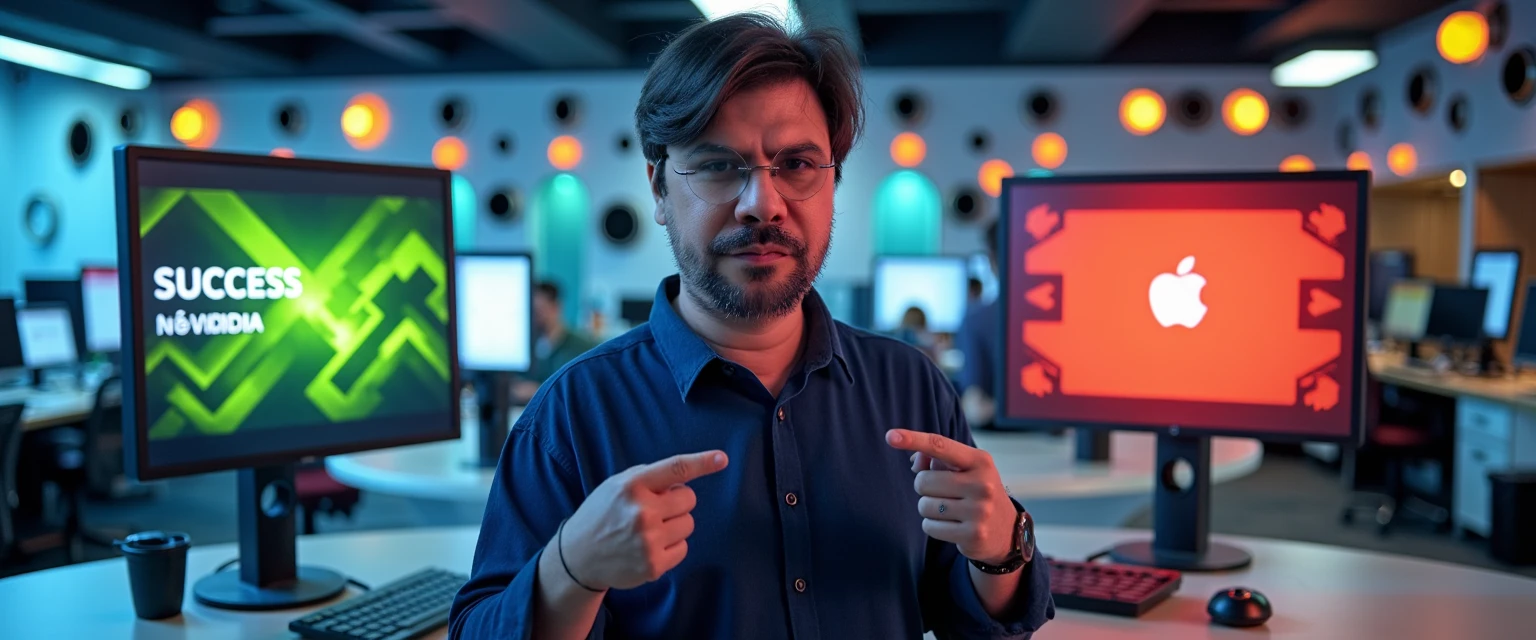AI Radar: Between Deepfakes and National Innovation — The Ethical Dilemmas of Technology in the Last 24 Hours
June 16, 2025 | by Matos AI

The Brazilian technological scenario over the last 24 hours reveals a striking contrast: while we celebrate advances in the creation of genuinely national AI models, we face a worrying increase in digital abuses powered by this same technology. This paradox is no coincidence – it represents the inflection point we are living in, where the speed of innovation often outpaces our ability to establish ethical and regulatory limits.
Brazilian justice faces the first cases of deepfakes: the Gretchen precedent
The São Paulo Court of Justice has ordered X (formerly Twitter) to delete a fake sexual video involving singer Gretchen. In addition to removing the content, the platform must reveal the digital identity of the user responsible for the publication. The case, involving a deepfake that showed a fake Gretchen inviting the public to sexual activities, as reported by G1, represents an important milestone in Brazilian jurisprudence on content manipulated by AI.
This case raises a crucial question about Article 19 of the Brazilian Internet Bill of Rights, currently under debate in the Brazilian Supreme Court, which could change the liability of platforms for content published by third parties. As AI makes the creation of fake content increasingly accessible and realistic, our legislation needs to evolve rapidly.
Join my WhatsApp groups! Daily updates with the most relevant news in the AI world and a vibrant community!
- AI for Business: focused on business and strategy.
- AI Builders: with a more technical and hands-on approach.
This is not just an isolated case. This worrying trend is confirmed in other recent news, such as the lawsuit filed by Meta against the creator of the app CrushAI, a tool capable of creating sexually explicit deepfakes. According to CNN Brazil, the developer allegedly circumvented the platform's rules to serve more than 87,000 violating ads as of February.
The Devastating Impact of Deepnudes: A New Form of Digital Violence
The phenomenon of deepnudes represents an alarming evolution of digital violence, especially against women. Folha de S.Paulo reports cases such as that of Violeta (fictitious name), a 16-year-old girl who discovered fake nude images of herself circulating in Telegram groups, created from common photos using AI tools.
This type of digital abuse causes serious damage to the mental health of victims, resulting in deep trauma and emotional exhaustion. Most worryingly, Brazil still lacks specific criminal legislation on the creation and dissemination of these fake images, leaving victims in an extremely vulnerable position.
As I have warned in my events on ethics in technology, we are witnessing a new frontier of violations of fundamental rights that demand not only legal responses, but also a deep reflection on how we develop and implement AI technologies responsibly.
GAIA: Brazil begins to build technological sovereignty in AI
On a positive note, during Google for Brazil, Google announced the GAIA project, an advanced open-source artificial intelligence model specifically optimized for Brazilian Portuguese. According to Forbes Brazil, the model was developed from Google's Gemma 3, with the supervision of Brazilian professors Celso Camilo and Sávio Teles.
This development represents an important milestone for Brazilian technological sovereignty. Language models developed specifically for Brazilian Portuguese can capture cultural and linguistic nuances that international models often miss. For Brazilian companies, this means more accurate and contextually relevant tools.
Most interestingly, GAIA is now available for free on the Hugging Face platform for developers, educational and research institutions, and companies of all sizes. It has also been integrated into Google Cloud’s Vertex AI Model Garden, simplifying its implementation in cloud projects.
This type of initiative is essential to democratize access to AI technology in Brazil and develop solutions that meet the specific needs of the local market. In my work with Brazilian startups, I have seen a growing demand for models that better understand the country’s cultural and linguistic context.
AI Transforms Universities: Setting the Stage for the Next Generation
The inclusion of AI in academic routine represents a significant transformation in the educational model. According to a report by Estadão, OpenAI is betting on making ChatGPT an indispensable tool in the university environment, promoting a new era of learning.
Universities that adopt these technologies seek to enhance learning by facilitating access to information and promoting personalized teaching. However, this implementation also raises important questions about privacy and technological dependency that need to be carefully considered.
This movement reflects a trend that I have been following closely since the founding of Sirius: the need to fundamentally transform the educational model to prepare professionals capable of working alongside AI, and not just being replaced by it.
Apple questions the viability of artificial superintelligence
While figures like OpenAI's Sam Altman claim to be close to creating a superintelligent AI, a group of Apple researchers dispute this idea. According to Olhar Digital, the study points out that current models are unable to perform complex tasks with the necessary precision.
This analysis raises crucial questions about the use of AI in roles that demand consistent results and the dangers of overestimating its capabilities. It is an important counterpoint to the hype that often dominates discussions about artificial intelligence.
In my experience working with tech startups, I’ve found that this balance between optimism and realism is essential. We need to recognize AI’s transformative potential without ignoring its real limitations, especially when it comes to mission-critical applications.
What these trends reveal about the future of AI in Brazil
The panorama of the last 24 hours reveals a Brazil that is beginning to face the same technological dilemmas already seen in more mature markets: on the one hand, we are developing local skills and tools adapted to our reality; on the other, we are facing the ethical and social challenges that arise with the democratization of these technologies.
The cases of deepfakes and non-consensual montages show that we urgently need to:
- Accelerate the update of the regulatory framework to deal with the new challenges posed by AI
- Demand greater accountability from technology platforms
- Educate the population about the risks and possibilities of these technologies
- Develop tools to detect and prevent manipulated content
At the same time, initiatives like GAIA demonstrate that Brazil has the potential to be more than a mere consumer of imported technologies. We can and should develop solutions adapted to our linguistic and cultural needs.
This duality between risks and opportunities is exactly what makes the current moment so fascinating and challenging. In my work as a mentor and consultant, I have helped companies and entrepreneurs navigate this complex landscape, identifying opportunities for responsible innovation that generate positive impact.
Conclusion: Balancing innovation and responsibility
The AI scenario in Brazil over the last 24 hours shows us that we cannot separate technological advances from their ethical and social implications. For every GAIA we develop, we need to be aware of the risks of deepfakes and other potentially harmful applications.
As entrepreneurs, investors, policymakers, and citizens, we have a shared responsibility to shape a future where technology enhances our capabilities without compromising our core values. In my AI for Business and AI Creators WhatsApp groups, we discuss daily how to find this delicate balance.
The future of AI in Brazil will not be defined solely by technological advances, but mainly by the choices we make today about how to develop, regulate and use these technologies. And in this process, it is essential that we have diverse voices participating in this debate.
✨Did you like it? You can sign up to receive 10K Digital's newsletters in your email, curated by me, with the best content about AI and business.
➡️ Join the 10K Community here
RELATED POSTS
View all



